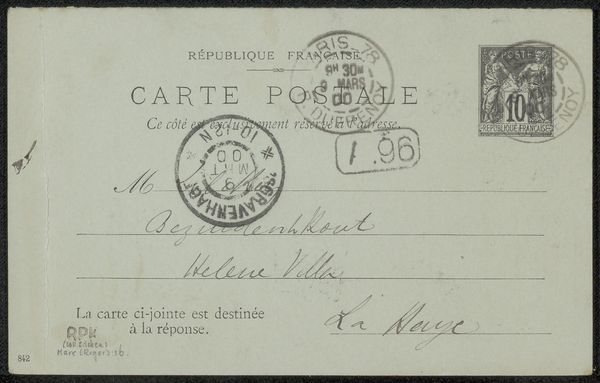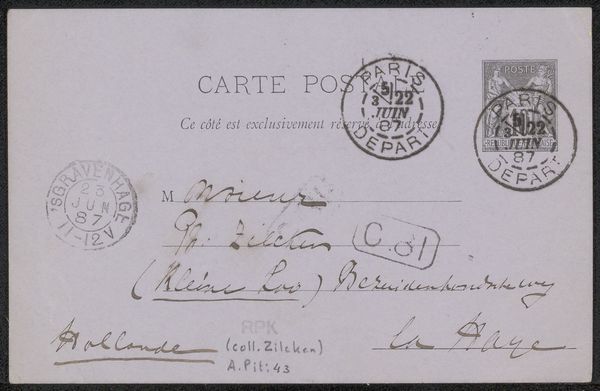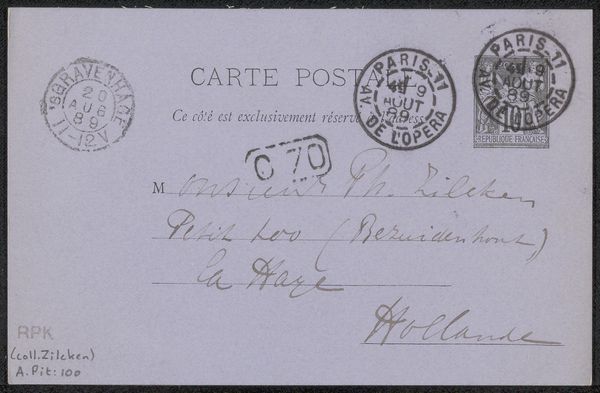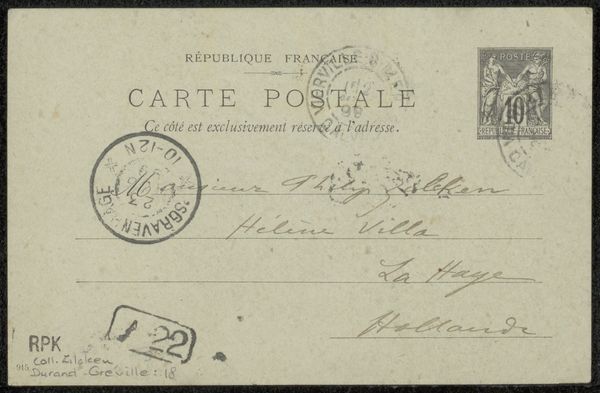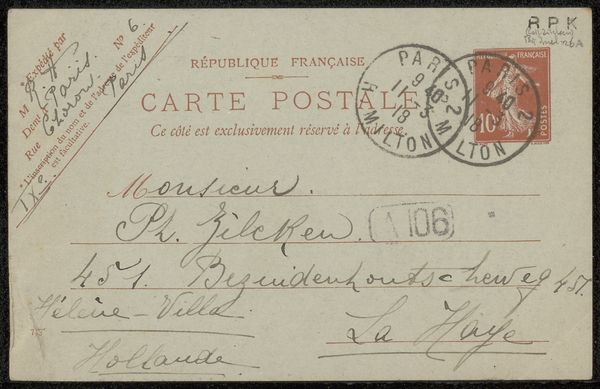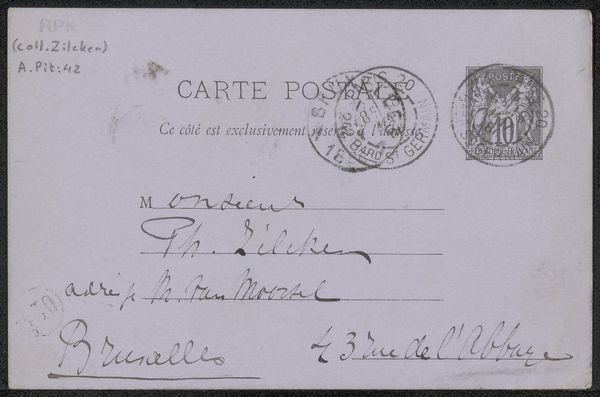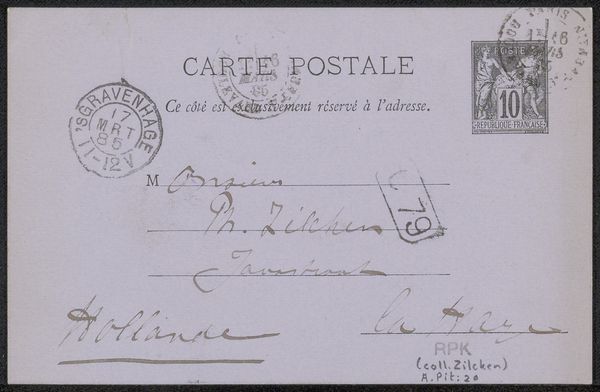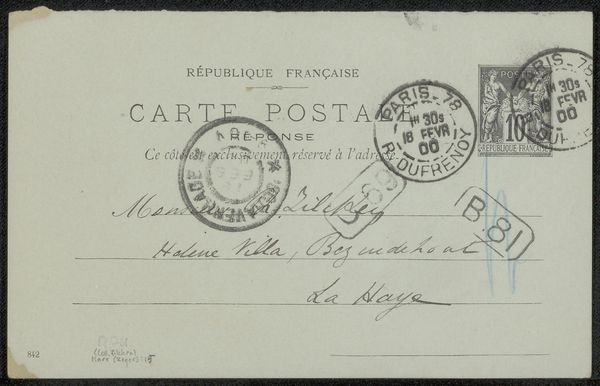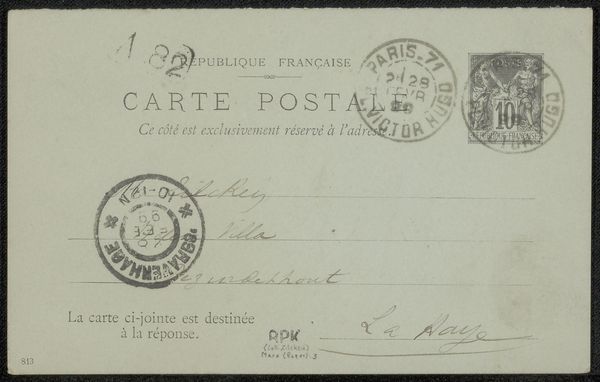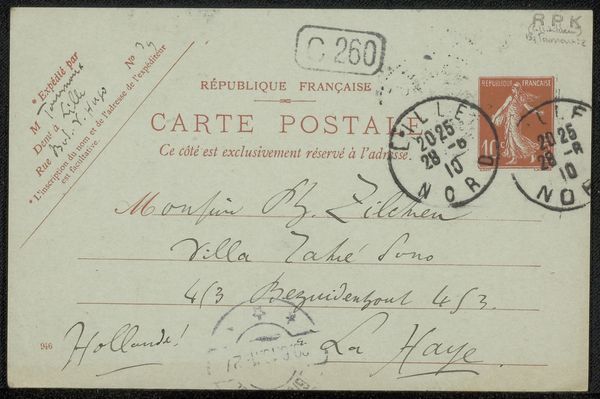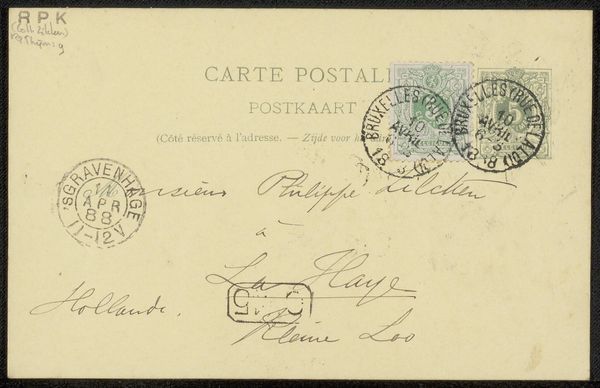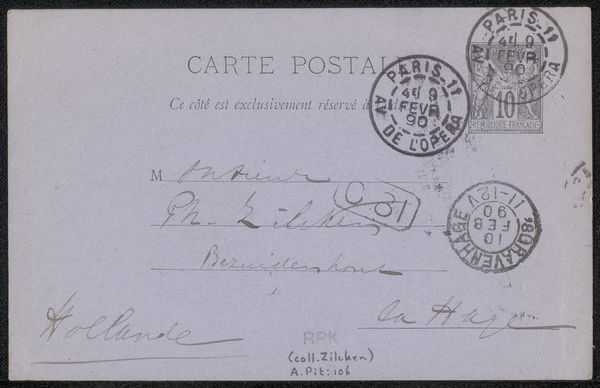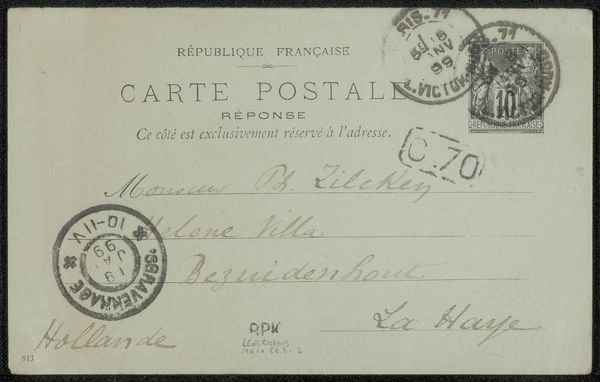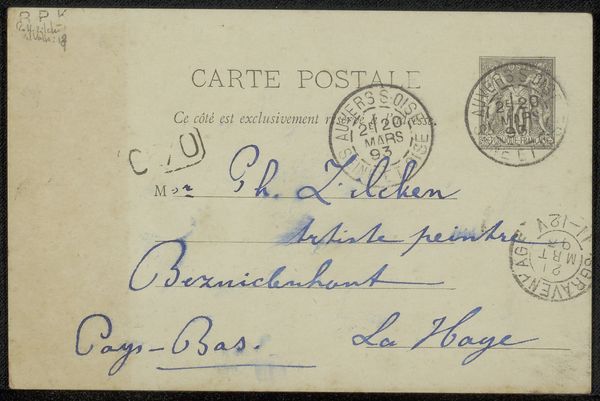
drawing, paper, ink
#
portrait
#
drawing
#
script typography
#
hand-lettering
#
lettering
#
hand drawn type
#
hand lettering
#
paper
#
personal sketchbook
#
ink
#
hand-drawn typeface
#
sketchbook drawing
#
post-impressionism
#
sketchbook art
#
small lettering
Copyright: Rijks Museum: Open Domain
Editor: Here we have "Briefkaart aan Filippo Tessaro," or "Postcard to Filippo Tessaro," made before 1888 by Herman Johannes Aloysius Maria Schaepman. It seems to be an ink drawing on paper. It gives off an official but personal feeling at the same time. What do you see in this piece? Curator: I see a fascinating intersection of public and private communication. It’s a postcard, so inherently public, yet addressed to a specific person, revealing intimacy. The visual language of hand-lettering takes centre stage and exists outside the conventional world of printed materials. Considering its historical context, let's think about literacy rates in the late 19th century. Who would have had the privilege to send and receive such correspondence? And what were the social implications of choosing hand-lettering over printing? Editor: That's a great point; it definitely speaks to class and access. So, it is also a form of self-expression. The beautiful and practiced hand must have taken years to cultivate! Curator: Precisely. This isn't just a message; it’s a performance of skill and identity. Think about the sender's intention. Were they trying to convey elegance, intelligence, or perhaps something else entirely? This piece makes you wonder: what's more subversive, its message, or the way it was delivered? What do you think? Editor: I never thought about it that way! The postcard itself becomes part of the message, conveying something beyond the literal words. It reminds us that communication isn't just about content; it’s about power, privilege, and self-representation. Curator: Indeed. By considering these layered contexts, we reveal narratives beyond the aesthetic appeal, connecting to the broader socio-political landscape. Editor: This conversation changed my view entirely. I see the artwork with deeper meaning. Thanks so much! Curator: My pleasure, let's continue the discussion next time.
Comments
No comments
Be the first to comment and join the conversation on the ultimate creative platform.
